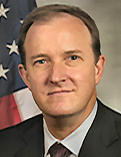 The over-burdened Office of Antiboycott Compliance (“OAC”) at the Bureau of Industry and Security, which engaged in all of three enforcement actions in 2009, is gunning for a record this year having just released its tenth settlement agreement for 2010. The lucky victim is Dallas-based Multicam, Inc., which agreed to pay $28,800 to settle allegations of eight violations of BIS’s anti-boycott regulations.
The over-burdened Office of Antiboycott Compliance (“OAC”) at the Bureau of Industry and Security, which engaged in all of three enforcement actions in 2009, is gunning for a record this year having just released its tenth settlement agreement for 2010. The lucky victim is Dallas-based Multicam, Inc., which agreed to pay $28,800 to settle allegations of eight violations of BIS’s anti-boycott regulations.
As usual, the settlement documents are crafted so as to provide as little guidance as possible to other exporters as to the exact nature of the violations. This is probably because OAC is so overwhelmed with enforcement actions that it really doesn’t have the time to fuss with such administrative diversions as exporter education. Of course, this blog is only to happy to take up the slack from the OAC and to try to explain the nature of the violations that cost Multicam almost $30,000.
Four of the violations were for engaging in prohibited boycott activities by furnishing information about business relationships with boycotted countries in violation of 15 C.F.R. § 760.2(d). Based on a table in the settlement documents, it appears that Multicam provided to its purchasers in the U.A.E. four “agent vessel certificates” that the vessel carrying the goods was eligible to enter U.A.E ports or, in one instance, “Arab ports.”
The OAC has always considered language as to eligibility to enter ports of individual countries engaged in the Arab League boycott or alternatively to enter “Arab ports” as a coded affirmation of compliance with the boycott. An interpretation in Supplement 1 to part 760 makes clear the owner, master or charterer of the ship can supply that certificate pursuant to an exception in section 760.3(c) permitting compliance with the documentation requirements of the boycotting country. But no one else can make that certification. And here it looks like an agent for the vessel, and possibly Multicam itself, made the certification. Moreover, certification of eligibility to enter “Arab ports” rather than U.A.E. ports would fall outside the 760.3(c) exception.
The four remaining counts were for failing to report receipt of boycott requests in violation of section 760.5. According to the table attached to the charging letter, one of the documentary requirements of three letters of credit was a certificate from the “shipping company or its agents” that the vessel could enter U.A.E. ports. Section 760.5(a)(5)(viii) exempts from the reporting requirements a request for a certificate from the “owner, master or charterer” of the vessel. The “shipping company” may not be any of these three things and an agent is certainly not any of those three things. Accordingly these were reportable requests. The fourth letter of credit at issue required as documentation a certificate by the “carrier/master” or its agent that the ship could enter “Arabian ports.” Here the carrier may not be the owner of the ship. Additionally, the 760.5(a)(5)(viii) exception doesn’t apply to certifications relating to “Arabian ports” as opposed to specific countries or groups of countries. For reasons known only to OAC, “Arabian” is not a reference to a group of countries. Go figure.
For those wondering what the logic is behind the relatively low fines imposed by OAC in these cases, notwithstanding that the office has the power to impose fines of p to $250,000 per violation, it’s simple. OAC wants to keep the fines sufficiently low that the fine is less than what it would cost to litigate the fine. There is considerable question whether the antiboycott regulations are still in force after the failure of Congress to renew the Export Administration Act. The regulations could only be in force if they can be extended by the President pursuant to the provisions of the International Emergency Economic Powers Act. And it’s hard to see how the Arab League boycott is an “unusual and extraordinary threat … to the national security, foreign policy, or economy of the United States.” OAC clearly doesn’t want to have to argue this in court.

 Posted by
Posted by  Category:
Category: 

 Just last week, I
Just last week, I 


